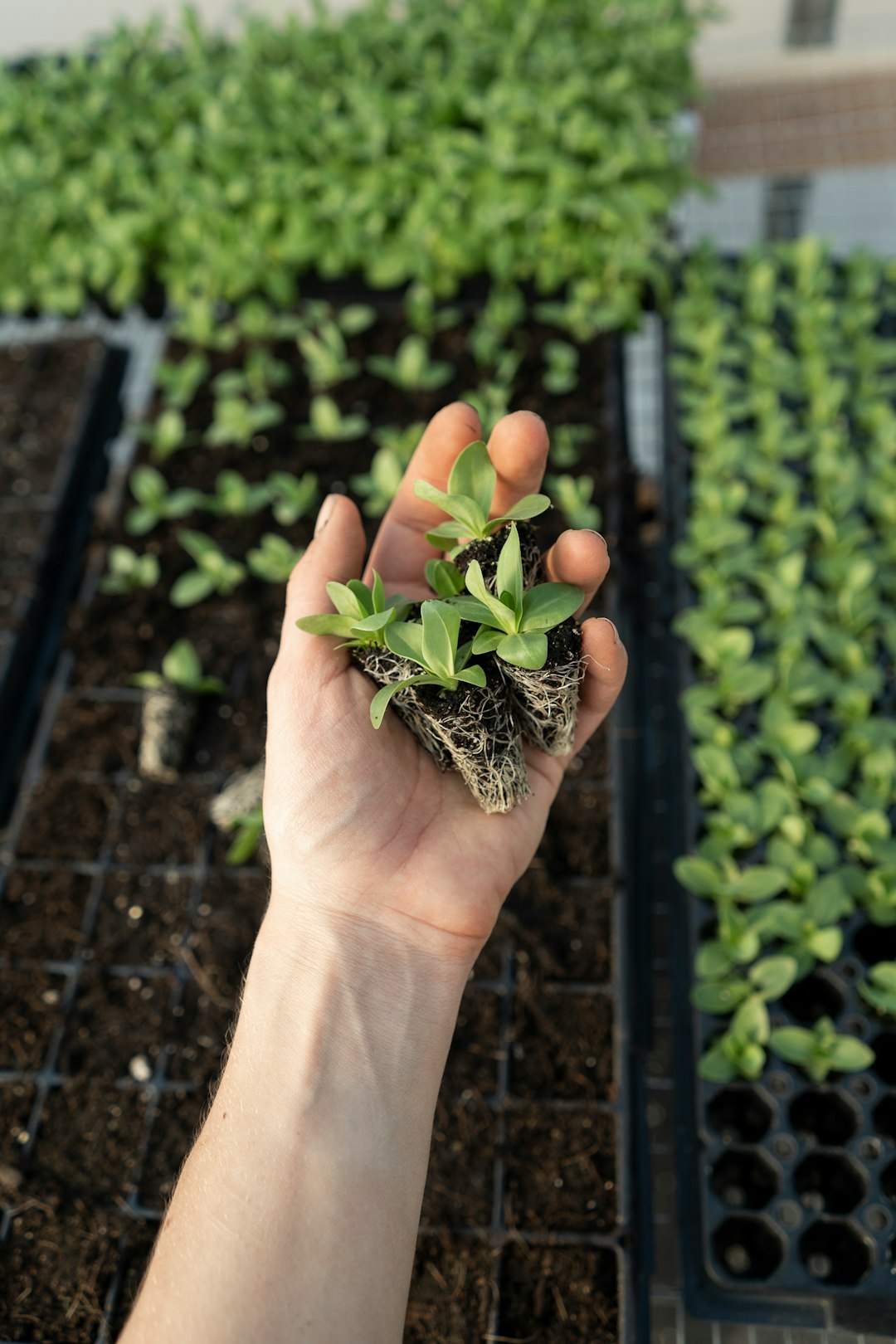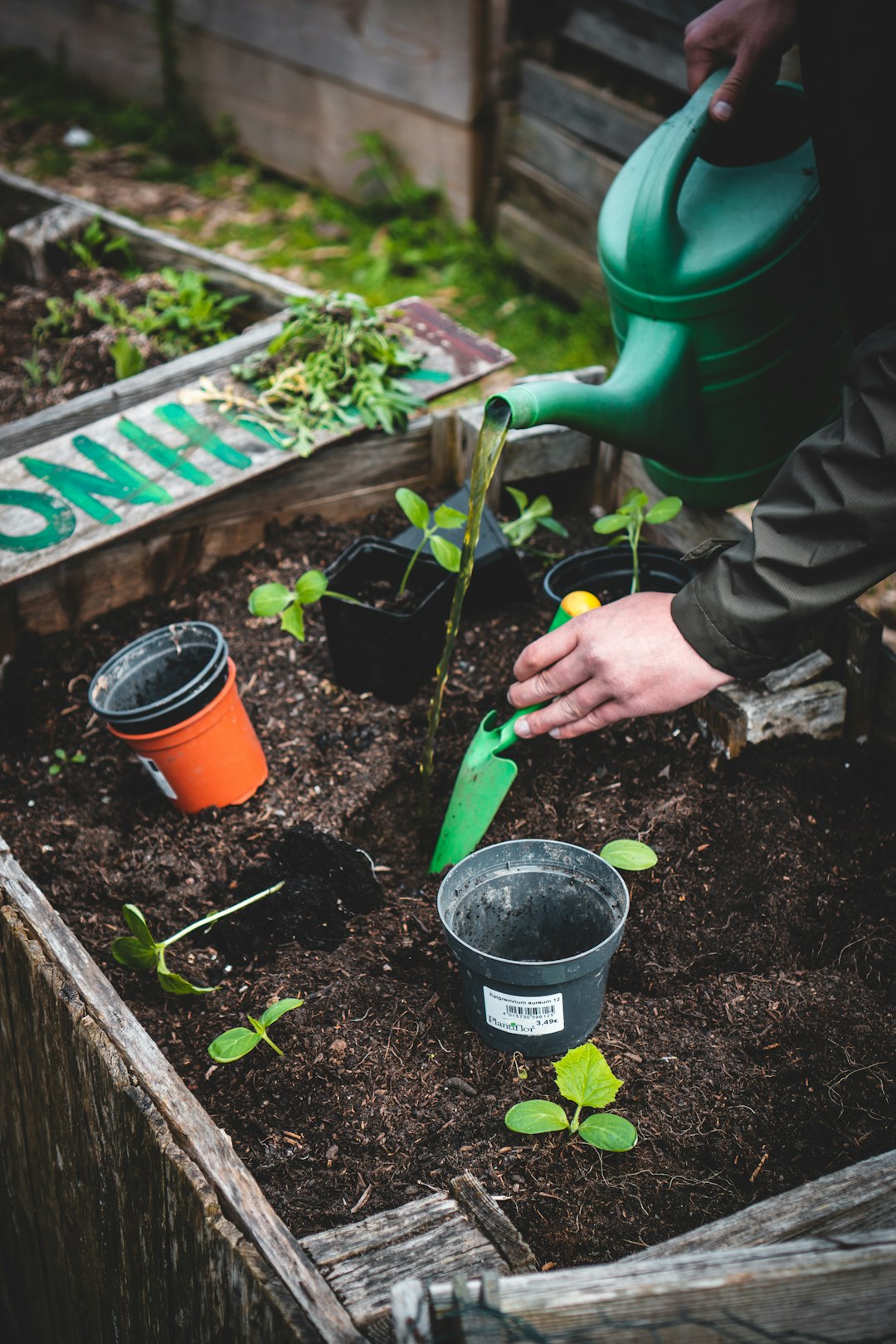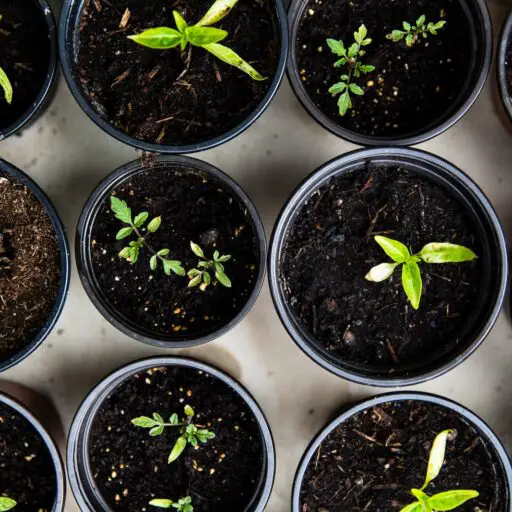Support our educational content for free when you purchase through links on our site. Learn more

Quick Answer: Yes, gardening can be a powerful tool in managing and alleviating symptoms of depression. The act of gardening provides numerous mental health benefits, including reducing stress, improving mood, boosting self-esteem, increasing attention span, and fostering social connections. Whether you have a green thumb or are a gardening novice, getting your hands dirty and nurturing plants can have a positive impact on your mental well-being. So, grab your gardening gloves and let’s explore how gardening can help with depression!
Table of Contents
- Quick Answer
- Quick Tips and Facts
- Background: The Therapeutic Power of Gardening
- Benefits of Gardening for Mental Health
- How Gardening Affects the Brain
- Gardening as a Stress Reliever
- Boosting Mood and Self-Esteem
- Improving Attention Span and Focus
- Fostering Social Connections
- Limits of Gardening for Mental Health
- Tips on Gardening for Mental Health
- FAQ
- Conclusion
- Recommended Links
- Reference Links
Quick Tips and Facts
- Gardening can help alleviate symptoms of depression by reducing stress, improving mood, boosting self-esteem, increasing attention span, and fostering social connections.
- The act of gardening releases endorphins, which are natural mood boosters.
- Spending time in nature and engaging in physical activity can improve mental well-being.
- Gardening can be done in various settings, including outdoor gardens, indoor spaces, and community gardens.
- You don’t need a green thumb to start gardening. It’s a learning process, and even small successes can have a positive impact on your mental health.
Background: The Therapeutic Power of Gardening

Gardening has been practiced for centuries, not only for its practical benefits but also for its therapeutic effects on mental health. The act of nurturing plants and watching them grow can bring a sense of purpose, accomplishment, and connection to the natural world. In recent years, scientific research has begun to uncover the specific ways in which gardening can positively impact mental well-being.
Benefits of Gardening for Mental Health
Gardening offers a wide range of benefits for mental health. Let’s explore some of the ways in which gardening can help with depression.
🌱 How Gardening Affects the Brain
Gardening has a profound impact on the brain. It stimulates various regions associated with positive emotions, memory, and attention. The act of gardening releases endorphins, which are natural mood boosters. It also increases the production of serotonin, a neurotransmitter that plays a crucial role in regulating mood. By engaging in gardening activities, you can create a positive feedback loop in your brain, leading to improved mental well-being.
🌻 Gardening as a Stress Reliever
Stress is a common trigger for depression, and finding healthy ways to manage stress is essential for mental well-being. Gardening provides an excellent outlet for stress relief. The physical activity involved in gardening helps release tension and promotes relaxation. The rhythmic nature of tasks like weeding, digging, and planting can have a calming effect on the mind. Spending time in nature and focusing on the present moment can also help reduce anxiety and promote a sense of peace.
🌿 Boosting Mood and Self-Esteem
One of the most significant benefits of gardening for mental health is its ability to improve mood and boost self-esteem. Seeing the fruits of your labor as plants grow and flourish can bring a sense of accomplishment and pride. Gardening provides a tangible reminder of your ability to nurture and care for living things. This sense of mastery and success can have a positive impact on your self-esteem and overall mood.
🌸 Improving Attention Span and Focus
In today’s fast-paced world, maintaining focus and attention can be challenging. Gardening offers a unique opportunity to practice mindfulness and improve attention span. The process of planning, tending to plants, and observing their growth requires concentration and focus. By engaging in gardening activities, you can train your brain to stay present and develop better attention skills. This can have a positive impact on your overall mental well-being.
🌼 Fostering Social Connections
Human connection is vital for mental health, and gardening can provide opportunities for social interaction and community engagement. Joining a community garden or participating in gardening events allows you to connect with like-minded individuals who share a passion for plants and nature. Working together in a garden fosters teamwork, collaboration, and a sense of belonging. These social connections can provide emotional support and reduce feelings of isolation, which are common in depression.
Limits of Gardening for Mental Health
While gardening offers numerous benefits for mental health, it’s important to acknowledge its limitations. Here are a few factors to consider:
❌ Risk of Illness and Injury
Like any physical activity, gardening carries some risks. It’s essential to take precautions to prevent injuries, such as using proper tools, wearing protective gear, and practicing safe lifting techniques. Additionally, gardening exposes you to the elements, which can increase the risk of sunburn, dehydration, and insect bites. It’s crucial to prioritize your safety and take necessary precautions while enjoying the therapeutic benefits of gardening.
❌ Other Mental Health Treatments
Gardening can be a valuable complement to other mental health treatments, such as therapy or medication. However, it’s important to recognize that gardening alone may not be sufficient to manage severe depression or replace professional help. If you’re experiencing persistent or severe symptoms of depression, it’s essential to seek guidance from a mental health professional who can provide appropriate support and treatment options.
Tips on Gardening for Mental Health
Whether you’re a seasoned gardener or just starting, here are some tips to maximize the mental health benefits of gardening:
- Start small: Begin with a small garden or a few potted plants. This allows you to manage your gardening tasks effectively and experience small successes along the way.
- Choose plants wisely: Select plants that are suitable for your climate, available space, and level of care you can provide. Consider low-maintenance plants if you’re a beginner or have limited time.
- Create a routine: Establish a regular gardening routine that fits your schedule. Consistency is key to reaping the mental health benefits of gardening.
- Practice mindfulness: While gardening, focus on the present moment and engage your senses. Pay attention to the texture of the soil, the scent of the flowers, and the sound of birds chirping. This can enhance the therapeutic effects of gardening.
- Join a community garden: If you’re looking for a social aspect to gardening, consider joining a community garden. It’s a great way to connect with others who share your passion for plants and nature.
FAQ

❓ Is gardening an antidepressant?
While gardening is not a substitute for professional treatment, it can have antidepressant-like effects. The physical activity, connection with nature, and sense of accomplishment associated with gardening can positively impact mood and overall mental well-being.
❓ Does gardening make you happier?
Yes, gardening can make you happier. The act of nurturing plants, spending time in nature, and engaging in physical activity releases endorphins, which are natural mood boosters. Gardening also provides a sense of purpose and accomplishment, which can contribute to increased happiness.
❓ Why is gardening so therapeutic?
Gardening is therapeutic because it combines various elements that promote mental well-being. It provides physical activity, exposure to nature, opportunities for mindfulness, and a sense of purpose and accomplishment. These factors work together to reduce stress, improve mood, and enhance overall mental health.
❓ Why is gardening good for your brain?
Gardening is good for your brain because it stimulates various regions associated with positive emotions, memory, and attention. The act of gardening releases endorphins and increases the production of serotonin, both of which contribute to improved mental well-being. Gardening also promotes mindfulness and helps improve attention span and focus.
Conclusion

Gardening can be a powerful tool in managing and alleviating symptoms of depression. The act of nurturing plants and connecting with nature provides numerous mental health benefits, including stress reduction, mood improvement, increased self-esteem, enhanced attention span, and social connections. Whether you have a green thumb or are just starting, gardening offers a therapeutic and rewarding experience. So, grab your gardening tools and start reaping the mental health benefits of gardening today!
Remember, gardening is a journey of growth and learning. Embrace the process, celebrate small successes, and don’t be afraid to seek guidance from fellow gardeners or professionals. Your mental well-being deserves to bloom just as beautifully as the plants in your garden!
Recommended Links
- Benefits of Community Gardens
- Community Garden Events
- Community Garden Policies
- Gardening for Beginners
- Garden Design Ideas
- Why were community gardens created? 2024 🌱


